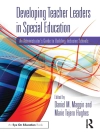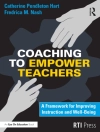Women in today’s advanced capitalist societies are encouraged to “lean in.” The media and government champion women’s empowerment. In a cultural climate where women can seemingly have it all, why do so many successful professional women—lawyers, financial managers, teachers, engineers, and others—give up their careers after having children and become stay-at-home mothers? How do they feel about their decision and what do their stories tell us about contemporary society?
Heading Home reveals the stark gap between the promise of gender equality and women’s experience of continued injustice. Shani Orgad draws on in-depth, personal, and profoundly ambivalent interviews with highly educated London women who left paid employment to take care of their children while their husbands continued to work in high-powered jobs. Despite identifying the structural forces that maintain gender inequality, these women still struggle to articulate their decisions outside the narrow cultural ideals that devalue motherhood and individualize success and failure. Orgad juxtaposes these stories with media and policy depictions of women, work, and family, detailing how—even as their experiences fly in the face of fantasies of work-life balance and marriage as an egalitarian partnership—these women continue to interpret and judge themselves according to the ideals that are failing them. Rather than calling for women to transform their feelings and behavior, Heading Home argues that we must unmute and amplify women’s desire, disappointment, and rage, and demand social infrastructure that will bring about long-overdue equality both at work and at home.
Inhoudsopgave
Preface and Acknowledgements
Abbreviations
Introduction
Part I: Heading Home: Forced Choices
1. Choice and Confidence Culture/Toxic Work Culture
2. The Balanced Woman/Unequal Homes
Part II: Heading the Home: The Personal Consequences of Forced Choices
3. Cupcake Mom/Family CEO
4. Aberrant Mothers/Captive Wives
Part III: Heading Where? Curbed Desires
5. The Mompreneur/Inarticulate Desire
6. Inevitable Change/Invisible Chains
Conclusion: Impatience
Appendix 1: Interviewees’ Key Characteristics
Appendix 2: List of Media and Policy Representations
Appendix 3: Study Methodology
Appendix 4: Characteristics of UK Stay-at-Home Mothers
Notes
Index
Over de auteur
Shani Orgad is associate professor in the Department of Media and Communications at the London School of Economics and Political Science. She is the author of
Storytelling Online: Talking Breast Cancer on the Internet (2005),
Media Representation and the Global Imagination (2012), and
Caring in Crisis? Humanitarianism, the Public and NGOs (2017, with Bruna Seu).












